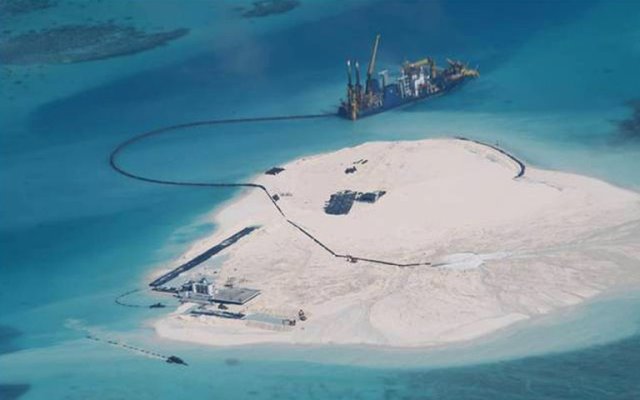The arbitral tribunal in The Hague, Netherlands today ruled that China “has no legal basis to claim rights” on territories it has occupied at the disputed West Philippine Sea (South China Sea) and has “violated the Philippines’ sovereign rights in its exclusive economic zone,” news reports from Manila stated.
The decision “upholds international law, particularly the 1982 [UN Convention on the Law of the Sea],” Philippine Foreign Secretary Perfecto Yasay, Jr was quoted by media as saying, as he welcomed the ruling.
He said he is open to holding bilateral talks with China following the tribunal’s decision.
Pres. Rodrigo Duterte, had for his part, said he wanted to wait for this ruling before deciding on any move he might take.
China has looked the other way on the legal action pursued by the Philippines to the tribunal regarding the matter , which started with the filing of a case on Jan. 22, 2013.
“[The] Tribunal concluded that, as between the Philippines and China, there was no legal basis for China to claim historic rights to resources, in excess of the rights provided for by the Convention, within the sea areas falling within the ‘nine-dash line’,” a press release from the Permanent Court of Arbitration PCA read.
The tribunal said “all of the high-tide features in the Spratly Islands (including, for example, Itu Aba, Thitu, West York Island, Spratly Island, North-East Cay, South-West Cay) are legally ‘rocks’ that do not generate an exclusive economic zone or continental shelf.”
The tribunal noted the following salient points in issuing its ruling:
The so-called “9-dash line” is invalid: “The Tribunal concluded that there was no legal basis for China to claim historic rights to resources within the sea areas falling within the ‘nine-dash-line.'”
Reclaimed islands have no exclusive economic zone: “The Tribunal noted that the current presence of official personnel on many of the features is dependent on outside support and not reflective of the capacity of the features… (and) ….that none of the Spratly Islands is capable of generating extended maritime zones.
“The Tribunal found that it could – without delimiting a boundary – declare that certain sea areas are within the exclusive economic zone of the Philippines, because those areas are not overlapped by any possible entitlement of China.”
China has behaved unlawfully: “China had violated the Philippines’ sovereign rights in its exclusive economic zone. The Tribunal further held that Chinese law-enforcement vessels had unlawfully created a serious risk of collision when they physically obstructed Philippine vessels.”
Beijing has damaged the environment: China’s large-scale land reclamation has “caused severe harm to the coral reef environment and violated its obligation to preserve and protect fragile ecosystems”.
Island building should have stopped during the dispute process: The panel said it had no jurisdiction over the military standoff at Second Thomas Shoal, where Chinese and Philippine military and law enforcement vessels are locked in confrontation.
However, “China’s recent large-scale reclamation and construction of artificial islands was incompatible with the obligations on a state during dispute resolution proceedings, insofar as China has… destroyed evidence of the natural condition of features of the South China Sea that formed part of the Parties’ dispute.”
Yasay said experts “are studying the Award with the care and thoroughness that this significant arbitral outcome deserves.
“In the meantime, we call on all those concerned to exercise restraint and sobriety,” Yasay said.
Yasay added that the Philippines “strongly affirms its respect for this milestone decision” to help address disputes in the South China Sea.”




